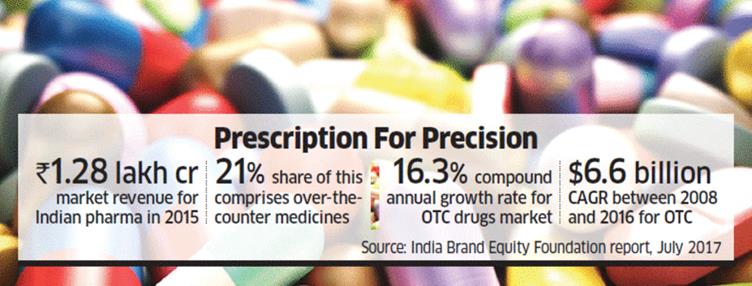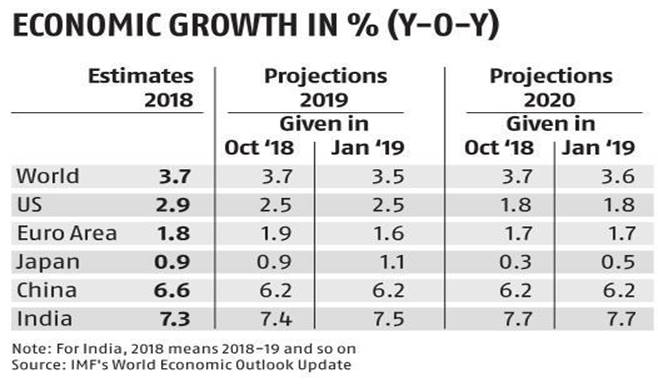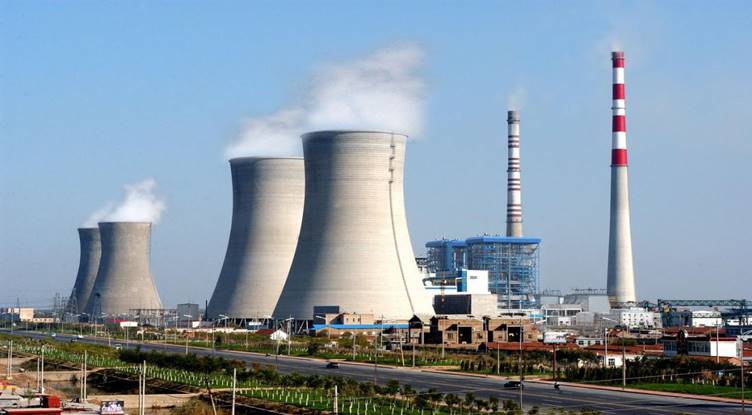



Wide access to OTC drug frees up government resources
Wide access to OTC drug frees up government resources
News Important for: GS Paper – 2 I Issues Relating to Development and Management of Services relating to Health.
Context
India needs to have a proper policy on Over The Counter (OTC) medicines for improvement in health indicators.
What are OTC medicines?
â— The medicines directly taken by people from the chemist as a part of self medication to cure diseases are called Over the Counter medicines.
â— A 2015 survey conducted by Lybrate among 20,000 people across 10 cities showed that 52% of people practised self-medication.

Regulation of OTC medicines in India
â— India lacks a well-defined regulation for over the counter (OTC) medicines which are important for patient safety.
â— The government is in the process of finalising an OTC drug policy it may bring more clarity on the drugs so that a wider population can access.
â— The Organisation of Pharmaceutical Producers of India (OPPI), a body of multinational drug companies, has worked with the government over the past one year by providing inputs to the draft of the OTC policy.
Why a regulation on OTC medicines required?
â— When few drugs with less side effects will be prescribed as OTC medicines government will have a less wide range of medicines to focus on. Thus will save time and resources.
â— OTC policy will improve access to drugs that are okay to be sold as OTC and restrict access to other drugs.
Source link:
IMF cuts India’s growth forecast for 2019-20 to 7%
News Important for: GS Paper – 3 I Economic Development
Context
IMF released its Global Growth Outlook Report for July 2019.

Analysis
â— IMF lowers India’s growth forecast for 2019-20 to 7% due to weaker than expected outlook for domestic demand.
â— In April, the IMF had cut India’s growth forecast for 2019-20 to 7.3%.
â— For 2020-21 IMF projected 7.2% growth which is 0.5% lower than the previous forecast.
â— RBI and Asian Development Bank also projected the same levels of growth rate for India as the IMF.
â— The IMF also lowered its forecast for emerging markets and developing economies by 0.3 percentage points for 2019 to 4.1% and by 0.1 percentage points for 2020 to 4.7%.
|
IMF’s World Economic Outlook Reports
â— It published twice a year. â— Presents IMF staff economist’s' analyses of global economic developments during the near and medium term. â— World Economic Outlook update for July, 2019 forecasted Global growth at 3.2% in 2019.
|
Source link:
State to find its own Hima Das through Mission Shakti
News Important for: GS Paper – 2 I Functions and Responsibilities of the Union and the States, Government Policies and Interventions for Development
Context
Maharashtra government is running Mission Shakti to spot talents for olympics.
Mission Shakti
â— Through Mission Shakti, international-quality facilities will be provided with a view to increase our medal tally in the Olympics.
â— The mission is directed towards six sporting disciplines, while grooming the students for selection in the 2024 Olympics.
â— The government has set aside funds at the district level to construct facilities and a stadium, while a mega sports complex is planned with a focus on six areas: archery, shooting, volleyball, swimming, weightlifting and gymnastics.
Source link:
Making the water-guzzling thermal plants accountable
News Important for: GS Paper – 2 I Government Policies and Interventions for Development in various sectors
Context
There is a need of strict regulations on thermal power plants for effectively saving water.

Why do we need a regulation?
â— To achieve 100% electrification goal,India’s installed power capacity will need to be doubled.
â— India still depends majorly on coal for generation of electricity.
â— Thermal power plants (TPPs) consume significant amounts of water during the electricity generation process.
â— Most of India’s TPPs are located in water-stressed areas, and water shortages have led to electricity-generation disruptions and significant revenue losses to the economy.
â— The amended Environment Protection (EP) Rules ended up permitting TPPs to use more water than what was initially specified.
What needs to be done?
â— Reports such as that of the Central Electricity Authority (CEA) on format for TPPs to report on their annual water consumption needs specific implementation.
â— Under the guidelines the power plants were asked to specify both metered and unmetered usage, report on the source (like a river, canal or sea), and state the percentage of deviation from the water norms, along with the reasons and the corrective measures undertaken.
â— It needs to be supplemented with other relevant instructions as,
â— TPPs should disclose the amount of water consumed by them in previous years, so that a baseline for water consumption per TPP can be established, and subsequent reductions in water consumption can be quantified.
â— These reporting requirements currently in the form of an Excel sheet on the CEA website must be added to the EP Rules, to accord the disclosure process greater transparency and enforceability.
â— TPPs should also be required to submit verifiable evidence (for example, water bills) to support and substantiate the disclosures. Without these, the self-reporting guidelines will remain weak.
â— The data supplied by TPPs should be placed in the public domain, so that the parameters disclosed can be studied in the context of region-specific water shortages, outages in the plants, and future research and analysis in this field.
â— There has to be specific penalties for specific offences under Environment Protection act.
â— The relevant officials in charge of enforcement, across the Ministry and the CEA, should be identified, and their roles clearly defined.
â— The implementation of these norms should include milestones and time-based targets, and periodic monitoring of the progress of TPPs in making improvements.
â— A shift towards a more aggressive RE pathway will help India achieve its global climate targets.
Conclusion
â— India needs to balance between its growing economy and water stress to achieve SDG 6 by 2030 also the Ministry of New and Renewable Energy has taken a first step by issuing a notice to State governments on reducing water use for cleaning solar panels and to explore alternative mechanisms to ensure that solar panels remain efficient which is appreciable.
Source link:

© 2025 iasgyan. All right reserved